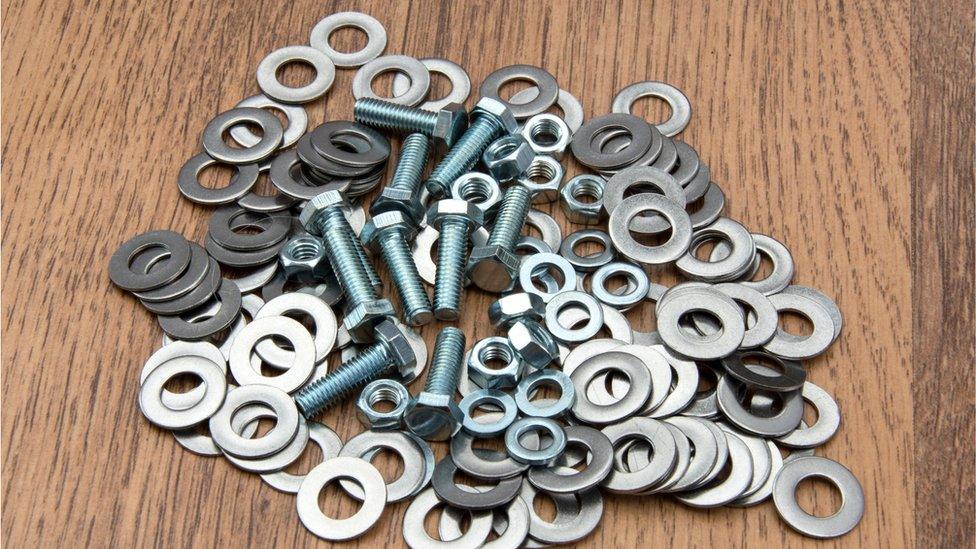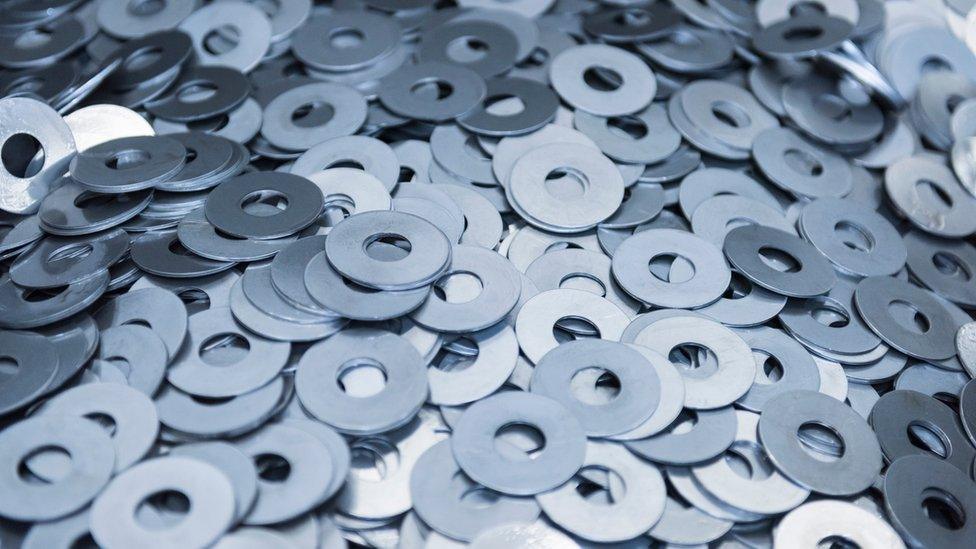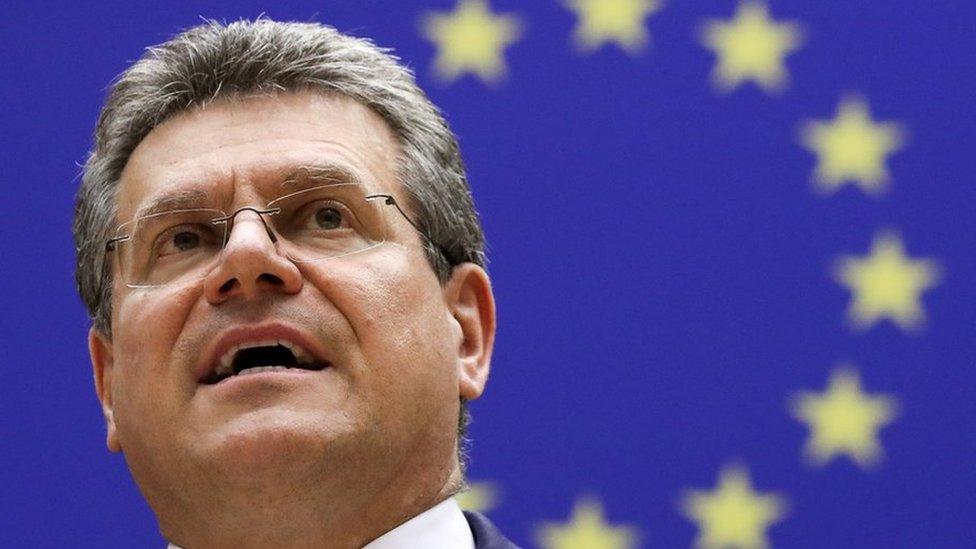EU-China trade dispute to hit Northern Ireland construction costs
- Published

The products affected include bolts, washers, wood screws and socket screws
Construction businesses in Northern Ireland are facing higher prices for some screws and bolts due to a trade dispute between the EU and China.
The EU is due to start applying import duties of almost 90% on some Chinese products as an "anti-dumping" measure.
"Dumping" is when a company exports a product at a price lower than it normally charges on its home market.
The NI Protocol means the EU's anti-dumping measures still apply in Northern Ireland.
The BBC has seen a letter from a major UK wholesaler to Northern Ireland customers warning that "following the imposition of duty we will be forced to increase prices on affected products".
The wholesaler adds that it is sourcing products from outside China but these are "generally more expensive" and may not be immediately available.
The products affected include bolts, washers, wood screws and socket screws.
The European Commission began an anti-dumping investigation in 2020 after a complaint from a European trade association.
The commission found against the Chinese exporters and has proposed a range of anti-dumping duties which range from just under 24% to almost 90%, depending on the company involved.
The duties are due to be imposed in late February.

Sam Lowe, trade advisor at the consultancy Flint Global, said this situation was an outworking of the protocol.
"Under the protocol, imports subject to EU trade defence measures will always be subject to the EU tariff, even if they remain in Northern Ireland," he said.
"This means there will be circumstances in which high trade defence tariffs are applied to imports into NI but not to imports into the rest of the UK.
"Depending on your perspective, this could mean either higher import costs for NI firms, or (relatively) higher protection from foreign competition."
He added that it was possible that the UK could decide to apply similar defensive tariffs but that was "certainly not a given".
'Self-employed may bear brunt'
The DUP leader, Sir Jeffery Donaldson, said it illustrated that the Irish Sea border is "continuing to drive a wedge between Northern Ireland and the United Kingdom internal market".
"Access to these materials is integral for a range of local sectors, not least engineering, manufacturing and construction," he said.
"Those who are self-employed may bear the brunt of the bill."
The BBC has asked the European Commission to comment.
Related topics
- Published24 January 2022
